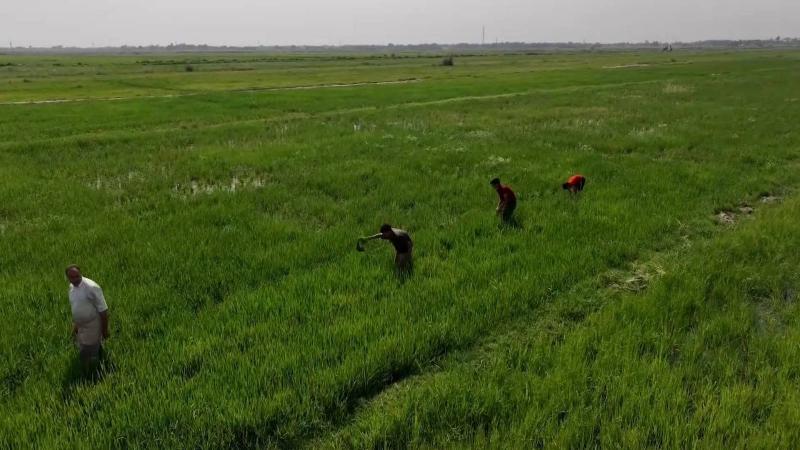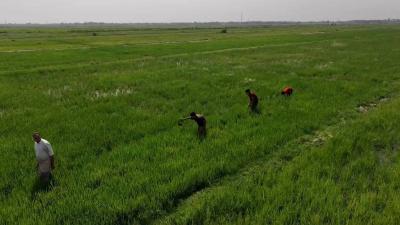Iraq has resumed rice cultivation after a two-year ban due to water scarcity, testing a variety that consumes less water compared to traditionally grown strains. Agricultural Ministry official Mahdi Sahar Al-Jabouri stated, "Iraq has allocated 150 square kilometers for rice cultivation this season, expecting a production of 150,000 tons." Officials noted that water availability has increased due to heavy winter rains, floods, and promises of more water flows from Turkey.
This comes after a two-year production ban, during which only five to ten square kilometers of rice were planted annually for seed extraction, amid a water crisis that experts say is linked to dams built by Turkey and Iran upstream, reduced rainfall, and other climate-related factors. Iraq is one of the ten largest importers of rice and wheat in the world, supporting a massive food ration program that has been ongoing since the era of Saddam Hussein.
Historically, Iraq cultivated most of its rice and exported wheat and barley decades ago and was once the largest exporter of dates in the world. However, soil salinity, poor irrigation systems, drought, and conflicts over the decades have harmed its agricultural sector, transforming Iraq into a major importer in global markets.




